Dragon's Dogma Preview
Pawn shop.
After all the talk of Monster Hunter and Demon's Souls, all the footage of giant beasts being tackled in majestic battles, it's quite a surprise to sit through the first couple of hours of Dragon's Dogma and realise what this actually is: an extremely traditional, noticeably Western roleplaying game.
It's set in a wide open fantasy world, which stretches from the sandy shores to mountainous regions, and walking from place to place promises lengthy, tempestuous journeys. The enormous monsters the game has already become known for are conspicuously absent: only one appears during our demo time, and it doesn't stick around for long.
Capcom have never made a secret of Dragon's Dogma's status as an open-world RPG, but it's interesting to see just how close to the standard formula the game sticks. Its universe is Oblivion, it's Two Worlds and it's Risen - it's places you've seen on countless occasions before, pieced together to create something whose only real identity is in how it combines the lot. And of all the quests you'll undertake throughout the game's duration, only a small percentage concern the slaying of gargantuan monsters.
One does arrive near the start of the game, however. The Hydra - a great, multi-headed serpentine creature - weaves its way around the wooden structures of your training ground, and you're tasked with bringing it down. Those who've been following Dragon's Dogma since its announcement may recognise this beastie from an impressive early trailer, but in-game the battle is a short one, the Hydra quickly slithering off and saving itself for a bigger fight later on.
At this stage, then, it takes the form of a mini boss battle, and mainly serves to train you in dealing with other, more challenging monsters that will appear elsewhere in the game. Your chances of felling something of such enormity by just swinging a sword around are slim, but fortunately the game affords you the opportunity to climb up the Hydra's scaly skin, hanging on perilously with one hand as you slash away at one of its many necks with the other.
The Hydra's health bar is huge. In fact, all of them are: it has several, and you'll need to grind them all down to zero before it's killed completely. Each chop removes just a smattering of the monster's life but, fortunately, once one of its heads has been separated from its slithery neck, the Hydra has the good sense to leave you alone for the time being.
It's with this head that Arisen, your absurdly named character, sets off for the Capital - a giant, walled city, which functions as the centrepiece of the Dragon's Dogma's world. It sits in the middle of the huge map, a great expanse surrounding it, and it's upon reaching this place that the land around you fully opens up.
Until this point, your path is restricted. You can venture off-course somewhat, and Capcom assure us that there's plenty to discover, even at this early stage of the game. But steep hills and rocky inclines prevent wider exploration, so for the first hour or so you're locked into a relatively small area.
During this time you'll also create your first pawn, and it's here that Dragon's Dogma injects some interesting ideas into the mould. Not only do you develop your protagonist with the game's expansive character creation tools, you also define your main pawn - a party member who'll stick with you for the duration of your voyage. As with your own character, you'll choose their physical traits, as well as their class and aspects of their personality.
But in a neat twist, you're not the only Dragon's Dogma player who'll benefit from your main pawn. You also have two other party roles to fill, and to do so you enter the Rift, an otherworldly dimension in which you can hire pawns that other people have created. The amount of in-game currency they'll cost you depends on how much they've levelled up - but a pawn you create can gain experience and loot in other people's adventures, benefiting your own efforts the next time you launch the game.
"A pawn you create can gain experience and loot in other people's adventures, benefiting your own efforts the next time you launch the game."
They're useful in combat, too. In a light tactical touch, you can give your pawns orders to either help you on the offensive, or hang back and assist from afar. There are three main classes in the game - a warrior, a mage and a strider, the latter specialising in ranged combat - and the AI works well to ensure they complement each other in battle. When faced with larger enemies they'll generally behave as they should, your mage ensuring the party is in good health, your strider looping arrows down onto the beast. And against smaller enemies, they'll pin down your target, ready for you to waste them with a finishing move.
Back en-route to the Capital, and it's these smaller enemies who stand in your way as you and your party escort the Hydra's giant head to the city. It's dragged along at a painfully slow pace by an ox cart, and it's up to you to fend off any ambushes along the way.
Wolves travel in packs, working to surround your party, while harpies swoop down from above, attempting to whisk you off your feat with their lengthy talons. Elsewhere, goblins lurk within dense shrubbery, hiding away, ready to leap out at the most opportune moment. Banging your sword against your shield lures enemies towards you, so you're in a better position to take them down.
The game's 20-minute day/night cycle means NPCs go about their business in a convincing manner. During the day they're hard at work, while at night they'll retire to their homes. And as the zombies demonstrate, some enemies will only appear after sundown, meaning the timing of your quests plays a large role in defining the level of challenge you'll face.
Like the world around it, the Capital itself is a vast place. Its streets twist and turn around individually crafted buildings - there are no copy-and-paste jobs here - which stretch upwards into the sky. The Capital acts as one of your central quest hubs, with tasks available to pick up directly from the characters who well within it, as well as from bulletin boards positioned around the world.
Beyond the walls of the city lie several other, smaller settlements, though what tales will be told within them remains a mystery for now. The scenery reaches out towards the horizon, and Capcom aren't blocking your access to any of it: if you can see something, you can go there, and explore.
Outside of the main demo, we're shown a later boss fight against a huge, stomping golem, set within a deep brown gorge. It feels more like the epic, drawn-out battles that people have perhaps expected from the game, with all four party members working strategically to quell the beast. As the pawns distract the golem at ground level, Arisen clambers up to an outcrop, upon which sits an enormous Gatling gun that fires arrows of flame.
The golem's leg sets alight and, disoriented, he stumbles into yet another fire. This isn't a scripted event; it's dynamic behaviour displayed by an enemy under attack. The cracks in his stony skin glow red, smouldering in the heat, as Arisen races back down to deliver a final blow. It's all suitably spectacular.
There are bound to be those who are disappointed by the lack of co-operative play, especially during sequences like this, but the truth is that Dragon's Dogma doesn't feel like it needs it. The AI companions do the job well, and besides, the focus of the game appears to be swayed more towards the exploration of its open world. While these epic battles may crop up both in the main quest and as optional extras, they're far from being all that the game has to offer.
As an open-world fantasy RPG, though, it's not like Dragon's Dogma doesn't have some established names to contend with. This is Capcom's first attempt at anything like it, and they'll have to deliver something special if itís to dislodge the genre's front-runners. We're still yet to discover much of the story, or learn of anything of the politics of this universe. Still, the signs are promising. If the lands beyond the Capital are filled with appropriate amounts of intrigue, this could be an unlikely one-to-watch.
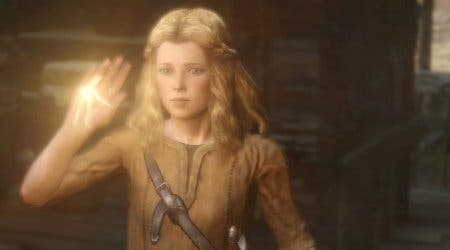

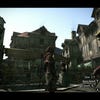
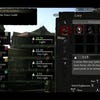
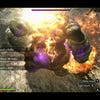
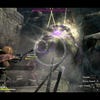
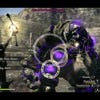
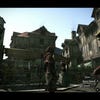
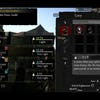
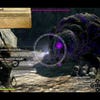
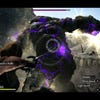
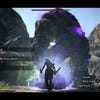
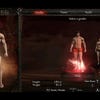
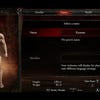
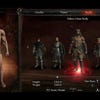
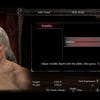
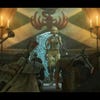
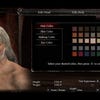
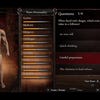

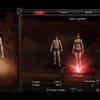
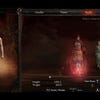

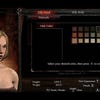
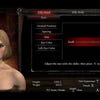
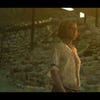
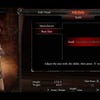



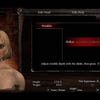
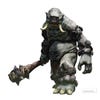
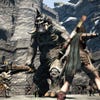
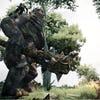
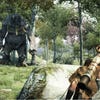
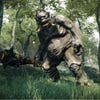
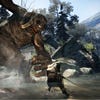
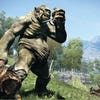
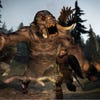
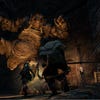
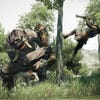
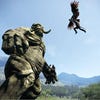
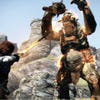
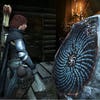
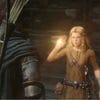
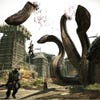
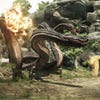
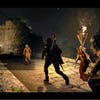
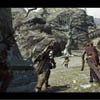
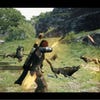
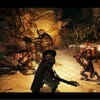
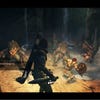
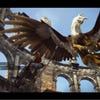
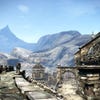
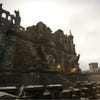
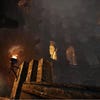
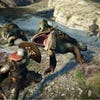
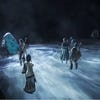
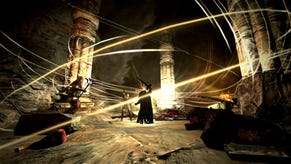

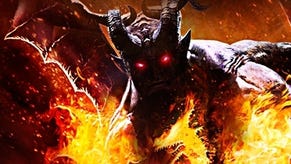

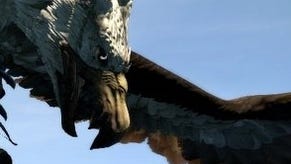
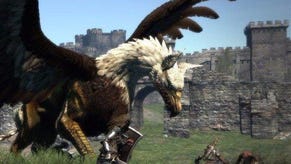
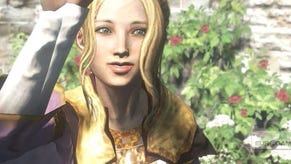
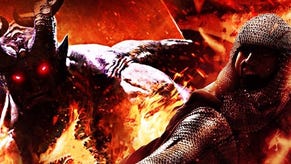

.png?width=291&height=164&fit=crop&quality=80&format=jpg&auto=webp)




.jpg?width=291&height=164&fit=crop&quality=80&format=jpg&auto=webp)
